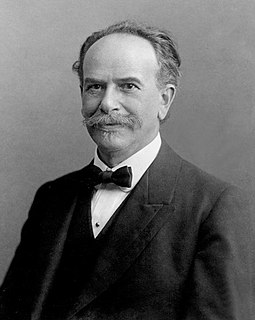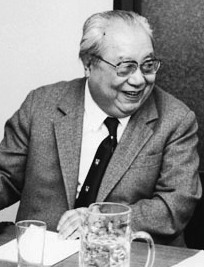
Anthropology is the scientific study of humanity, concerned with human behavior, human biology, cultures, and societies, in both the present and past, including past human species. Social anthropology studies patterns of behaviour, while cultural anthropology studies cultural meaning, including norms and values. Linguistic anthropology studies how language influences social life. Biological or physical anthropology studies the biological development of humans. Visual anthropology, which is usually considered to be a part of social anthropology, can mean both ethnographic film as well as the study of "visuals", including art, visual images, cinema etc. Oxford Bibliographies describes visual anthropology as "the anthropological study of the visual and the visual study of the anthropological".

Franz Uri Boas was a German-born American anthropologist and a pioneer of modern anthropology who has been called the "Father of American Anthropology". His work is associated with the movements known as Historical Particularism and Cultural Relativism.

Bronisław Kasper Malinowski was an anthropologist whose writings on ethnography, social theory, and field research were a lasting influence on the discipline of anthropology.

Sir Edward Evan Evans-Pritchard, FBA, known as E. E. Evans-Pritchard, was an English anthropologist who was instrumental in the development of social anthropology. He was Professor of Social Anthropology at the University of Oxford from 1946 to 1970.

Fei Xiaotong or Fei Hsiao-Tung was a Chinese anthropologist and sociologist. He was a pioneering researcher and professor of sociology and anthropology; he was also noted for his studies in the study of China's ethnic groups as well as a social activist. One of China's finest sociologists and anthropologists, his works on these subjects were instrumental in laying a solid foundation for the development of sociological and anthropological studies in China, as well as in introducing social and cultural phenomena of China to the international community. His last post before his death in 2005 was as Professor of Sociology at Peking University.

Clifford James Geertz was an American anthropologist who is remembered mostly for his strong support for and influence on the practice of symbolic anthropology, and who was considered "for three decades...the single most influential cultural anthropologist in the United States." He served until his death as professor emeritus at the Institute for Advanced Study, Princeton.
Andre Gunder Frank was a German-American sociologist and economic historian who promoted dependency theory after 1970 and world-systems theory after 1984. He employed some Marxian concepts on political economy, but rejected Marx's stages of history, and economic history generally.

Dame Mary Douglas, was a British anthropologist, known for her writings on human culture and symbolism, whose area of speciality was social anthropology. Douglas was considered a follower of Émile Durkheim and a proponent of structuralist analysis, with a strong interest in comparative religion.

Risk perception is the subjective judgement that people make about the characteristics and severity of a risk. Risk perceptions are different for the real risks since they are affected by a wide range of affective, cognitive, contextual, and individual factors. Several theories have been proposed to explain why different people make different estimates of the dangerousness of risks. Three major families of theory have been developed: psychology approaches, anthropology/sociology approaches and interdisciplinary approaches.
The cultural cognition of risk, sometimes called simply cultural cognition, is the hypothesized tendency to perceive risks and related facts in relation to personal values. Research examining this phenomenon draws on a variety of social science disciplines including psychology, anthropology, political science, sociology, and communications. The stated objectives of this research are both to understand how values shape political conflict over facts and to promote effective deliberative strategies for resolving such conflicts consistent with sound empirical data.

Dan Sperber is a French social and cognitive scientist and philosopher. His most influential work has been in the fields of cognitive anthropology, linguistic pragmatics, psychology of reasoning, and philosophy of the social sciences. He has developed: an approach to cultural evolution known as the epidemiology of representations or cultural attraction theory as part of a naturalistic reconceptualization of the social; relevance theory; the argumentative theory of reasoning. Sperber formerly Directeur de Recherche at the Centre National de la Recherche Scientifique is Professor in the Departments of Cognitive Science and of Philosophy at the Central European University in Budapest.
Dame Ann Marilyn Strathern, DBE is a British anthropologist, who has worked largely with the Mount Hagen people of Papua New Guinea and dealt with issues in the UK of reproductive technologies. She was William Wyse Professor of Social Anthropology at the University of Cambridge from 1993 to 2008, and Mistress of Girton College, Cambridge from 1998 to 2009.
Ronald Godfrey Lienhardt was a British anthropologist. He took many photographs of the Dinka people he studied. He wrote about their religion in Divinity and Experience: the Religion of the Dinka.

Natural Symbols: Explorations in Cosmology is an influential book by the British cultural anthropologist Mary Douglas. Further editions were published in 1973, 1982, 1996, 2003. It was also published in 2003 as volume 3 in Mary Douglas: Collected Works (ISBN 0415291062).

Implicit Meanings: Essays in Anthropology is a collection of essays written in the 1950s, 1960s and 1970s by the influential social anthropologist and cultural theorist Mary Douglas.
Social anthropology is the study of patterns of behaviour in human societies and cultures. It is the dominant constituent of anthropology throughout the United Kingdom and Commonwealth and much of Europe, where it is distinguished from cultural anthropology. In the United States, social anthropology is commonly subsumed within cultural anthropology or sociocultural anthropology.

R. S. Khare is a socio-cultural anthropologist and a Professor of Anthropology at the University of Virginia, U.S. He is known for studying “from within/without” India's changing society, religions, food systems, and political cultures, and for following the trajectories of contemporary Indian traditional and modern cultural discourses. His anthropology has endeavored to widen reasoned bridges across the India-West cultural, religious-philosophical, and literary distinctions and differences.

Robin Horton, an English social anthropologist and philosopher, has carried out specialised study in comparative religion since the 1950s which has challenged and expanded views in the study of the anthropology of religion. He is notable for his comparison of traditional thought systems to Western science. This formed the basis for his analysis of African thought that he published in two instalments in 1967. His work continues to be viewed as important in understanding traditional African religious approaches. For more than four decades Horton has lived in Africa, where he continues to conduct research on African indigenous religions, magic, mythology and rituals. During 40 years of residence in Africa, he has worked as a researcher and a professor of philosophy and religion at several universities, including the University of Port Harcourt in Rivers State, Nigeria, and the University of Ife in Osun State, Nigeria.
This bibliography of anthropology lists some notable publications in the field of anthropology, including its various subfields. It is not comprehensive and continues to be developed. It also includes a number of works that are not by anthropologists but are relevant to the field, such as literary theory, sociology, psychology, and philosophical anthropology.
Douglas A. Harper is an American sociologist and photographer. He is the holder of the Rev. Joseph A. Lauritis, C.S.Sp. Endowed Chair in Teaching with Technology at Duquesne University, a chair funded by a grant from the Mellon Foundation.













